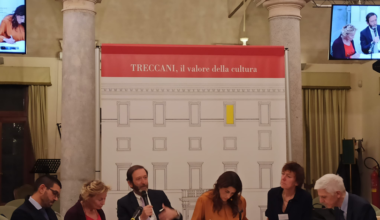La Corte di Giustizia Europea, con la sentenza del 6 Settembre 2017 nelle cause riunite C-643/2015 e C-647/2015 Slovacchia e Ungheria vs Consiglio, respinge i ricorsi della Slovacchia e dell’Ungheria contro il meccanismo provvisorio di ricollocazione obbligatoria di richiedenti asilo, facendo leva sugli artt. 78 e 80 TFEU
The European Union is struggling to cope with the so–called “migration crisis” that has emerged over the past few years. Tracing the right policies to address immigration requires a deep understanding of its root causes consistent with the objectives sought to be achieved. The EU won an important victory on Wednesday 6th September 2017 in its fractured effort to deal with the huge wave of migration that began in 2015, as the bloc’s top court ruled that Hungary and Slovakia were obliged to accept migrants under a contentious quota system.
The Council of the European Union, in response to the migration crisis that affected Europe in the summer 2015, adopted a decision to call all the Member States in applying concrete measures of solidarity, in order to benefit Italy and Greece. The first of the two measures adopted was enacted on 14th September and the other one on 22nd September 2015, both hinging upon Article 78 TFEU, which empowers the EU to pass laws benefiting states overwhelmed by a sudden inflow of migrants, and Article 80 TFEU, which stipulates that such decisions must be governed by the principle of solidarity and fair sharing of responsibility between Member States. Those decisions were intended to reinforce internal solidarity in the EU and show the commitment of all EU Member States to share the migration burden with the two Mediterranean countries.
The Visegrad group of EU countries (Poland, Hungary, the Czech Republic and Slovak Republic) have persistently and decisively refused to comply with these relocation decisions. The decision of the 6th September 2017 to joint cases C-643/2015 and C-647/2015 provides for the relocation from Italy and Greece to other EU Member States, over a period of two years, also increasing emergency assistance: in fact, these two countries have a long-standing tradition of asylum for having “assisted” unprecedented flows of migrants, including applicants for international protection (being in clear need of it), arriving on their territories, generating significant pressure on their migration and asylum systems.
On the 9th of September 2015 the European Commission submitted to the Parliament’s control an initial proposal: the relocation of 120.000 applicants for international protection, from Italy (15.600), Greece (50.400) and Hungary (54.000), to the other Member States. This proposal was subjected to the national parliaments and Hungary rejected the notion of being classified as a ‘frontline Member State’, though it did not wish to be among the Member States benefiting from relocation as Italy and Greece were. Accordingly, in the final version of the proposal, all references to Hungary, as a beneficiary Member State, were deleted. The CJEU notes that other amendments made after that date did not affect the actual essence of the Commission’s proposal. At the end, the proposal was adopted by the Council of the European Union, acting by qualified majority, but the Czech Republic, Hungary, Romania and the Slovak Republic voted against its adoption. The Republic of Finland abstained.
Hungary and Slovak Republic hence challenged the legality of the relocation decision of 22nd September 2015 before the CJEU. The Court rejected this challenge and upheld enforceability of the duty of solidarity among EU Member States, through the previously-mentioned judgment C- 643/15.
In support of their actions, Hungary and Slovak Republic put forward different pleas, seeking to show that :
1) The adoption of the decision was vitiated by procedural flaws or It arises from the choice of an inappropriate legal basis
- In this perspective, Article78(3) TFEU cannot be considered as a proper legal basis for the contested decision. In fact, as far as Hungary and Slovak Republic were concerned, even though the contested decision was adopted in accordance with the non-legislative procedure and is therefore formally a non-legislative act, it must nevertheless be classified as a legislative act because of its content and its effects, since it amends a number of legislative acts of EU law. In addition, although the contested decision mentioned the amendments as mere ‘derogations’, the distinction between a derogation and an amendment is artificial, since, in both cases, the effect is to exclude the application of a normative provision and to undermine its effectiveness.
- On the contrary, the Council disputes the allegation according to which the contested decision amended a number of legislative acts of EU law and should thus be classified as a legislative act, on account of its content. There is not any ground for maintaining that the derogations introduced by the contested decision are means of circumventing the ordinary legislative procedure, as provided for in Article 78(2) TFEU. The Court was therefore fully entitled to take the view that the act had to be adopted following a non-legislative procedure and it was accordingly a non-legislative EU act. In fact, a legislative procedure can be followed only where a provision of the Treaties expressly refers to it (art. 78(3) does not contain any express reference to a legislative procedure).
- Bearing in mind that Article 78(3) TFEU does not establish the nature of the ‘provisional measures’ that may be adopted pursuant to it, contrary to what is maintained by the Slovak Republic and Hungary, the wording of Article 78(3) TFEU does not in itself support a restrictive interpretation of the concept of ‘provisional measures’ to the effect that the concept covers only accompanying measures which support a legislative act adopted on the basis of Article 78(2) TFEU.
- The Court also stressed that the temporal scope of the contested decision (from 25 September 2015 to 26 September 2017) is precisely delineated; the provisional nature of the decision, moreover, cannot be denied. The Conclusions of the European Council of 25 and 26 June 2015, which stated that the Member States were to agree ‘by consensus’ on the distribution of persons in clear need of international protection and were to do so in a manner ‘reflecting the specific situations of Member States’, could not prevent the adoption of the contested decision. In addition to this, the Court considers that the relocation mechanism provided by the contested decision is not a measure that is manifestly inappropriate in contributing to achieving its objective, namely helping Greece and Italy to cope with the impact of the 2015 migration crisis.
2) The decision was neither a suitable response to the migrant crisis, not necessary for that purpose
- As concerns the second plea, the CJEU considers that the legality of the decision cannot be called into question on the basis of retrospective assessments of its efficacy. Where the EU legislature must assess the future effects of a new set of rules, its assessment can be challenged only where it appears manifestly incorrect in the light of the information available to the legislature at the time of the adoption of the rules in question. In this case, instead, the Council carried out, on the basis of a detailed examination of the statistical data available to it at the time, an objective analysis of the effects of the measure on the emergency situation.
The Court, in its judgment, further observed that the small number of relocations carried out under the contested decision can be explained by a series of factors that the Council could not have foreseen at the time when the decision was adopted, including, in particular, the lack of cooperation between certain Member States. As well as, the Court finds that the Council did not make a manifest error of assessment, when it took the view that the objective pursued by the contested decision could not be achieved by less restrictive measures.
It is said to realize that the first ever attempt to enforce Article 78 (3) TFEU has generated a fierce legal battle and a poor degree of implementation. Supposing that the two cases are joined (as it is reasonable to expect), a judgement comes, being surely a landmark one and taking into account the issues at stake and the subjects participating to the proceedings. This important victory achieved by the judgement will be remembered – more than for its influence on some Member States during the two-year period of enforcement of the relocation scheme – for the indications that it will give to the EU institutions on the future of the Common European Asylum System, and more broadly to the whole process of Europen Integration. In this problematic conjuncture for the integration process, the ECJ has been called to play a decisive role for reaffirming the primacy of principles and of law over disruptive trends, furthermore by encouraging and strenghtening the cooperation between member states. Indeed, It’s important to bear in mind that the EU has taken in more than 1.7 million people from the Middle East and Africa since 2014. However, after a mass influx in 2015, the number of arrivals has fallen steadily after actions last year that all but closed the route from Turkey to Greece and from Greece to the Balkans and Northern Europe. The EU has also increased support for Libya to curb arrivals in Italy. The ruling has no impact on the UK, which has an opt-out from this area of EU law.
The European Commission warned EU Member States earlier this year that there were “no more excuses” for not delivering on promises to take on refugees. According to the International Organization for Migration, as of August 30 this year, only 27,412 people had been relocated to 24 countries, compared with the 120,000 provided for by the scheme. Of those, 19,200 were transferred from Greece and 8,212 from Italy. Germany, France and the Netherlands have taken in the highest number. Under the emergency scheme, 120,000 relocations were due to take place over two years, ending in September 2017.






